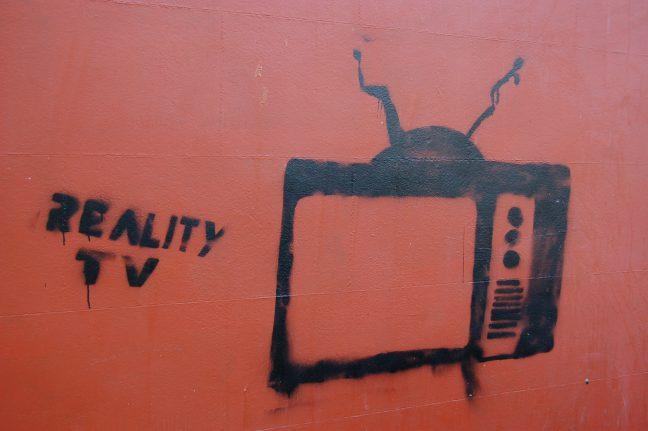Reality TV — sometimes dangerously — blurs the line between reality and fiction.
We live in a day and age where it seems like just about anything people might find interesting has been made into a reality TV show.
Families with lots of kids, teen moms and Flavor Flav looking for love have all found their way onto our televisions, laptops and smartphones.
The term “reality TV” is meant to indicate that the shows feature real people with real emotions and feelings, not actors, but the blurring that takes place between reality and fiction is a real problem.
I should note that over the years I’ve really enjoyed reality TV. I have absolutely gotten wrapped up in entire seasons of “The Bachelor,” or — as much as I’m ashamed to admit it — binge watched “Jersey Shore.”
There’s nothing wrong with that, as long as you recognize that reality TV is not reality, nor should most aspects of any of these shows take place in your real life.
Think for a second about a show like “The Bachelor.”
“The Bachelor” has been around for 20 seasons, and every season ends with a happy couple riding off in the sunset. But it always seems like just weeks or months after the finale, we find out the “happy couple” is breaking up.
For the record, there are couples who have ended up happy together after the show, but the problem with “The Bachelor” isn’t whether the couples end up together or not, it’s how they portray relationships and how that portrayal impacts our own happiness in relationships, or lack thereof.
In real life, relationships take hard work and compromise. Usually, a relationship takes place between two people who are both only seeing one another, must go to work every day, must pay their bills and maintain their lives.
Basically, relationships that exist in the real world have to deal with the difficulties of real life.
I assume that most people watching the show understand that real life usually isn’t as simple as going on dates in a hot air balloon, skiing the Swiss Alps, or going yachting in Bora Bora.
But see, even with viewers understanding that, the show still highlights only the best parts of a relationship. The contestants, who have known each other a matter of weeks, talk about how much they are in love with one another.
But they never face real life.
They never face difficulties that aren’t manufactured by being on a show with two dozen other men and women vying for the same person’s affections.
I wonder if to some extent, even if viewers know that the show is unrealistic and manipulated by producers, they begin to think that their relationships aren’t living up to the ones they see on the show.
Shows like the Bachelor distort the real nature of love and relationships by trying to make their show as idyllic as possible.
Another instance of this would be “The Biggest Loser” on NBC.
For those of us who are trying to lose weight, watching people on TV shedding pounds at the rate they do makes it look like it should be easy for everyone to do the same.
They show the contestants working out and eating healthier, but what they don’t tell us is that it might not be healthy or possible to lose weight the way they do in our own day-to-day lives. They don’t even prepare their own contestants for the long-term issues they may face because of how the show operates. In fact, researchers at the National Institutes of Health found that a good portion of the biggest loser contestants have gained much or all of the weight they lost.
Again, I understand that for many who watch it, a show like the Biggest Loser is meant to inspire and isn’t meant to be taken literally.
But at the same time, creators manipulate the show to make it seem like it is real and practical, even when evidence from past competitors shows us that it isn’t that simple, nor is it realistic.
Reality TV is not only fake, it manipulates viewers into thinking that it’s real. By doing this, the creators and producers on these shows ensure that viewers will be drawn in, completely disregarding the fact that their shows are impractical and fictional, far more than we even realize.
I’m certainly not advocating for an end to reality TV. But I am suggesting that viewers need to understand that just because it says “reality,” does not mean what they are watching anything remotely real. If you remember to be mindful of that, then binge watch away.
Connor Touhey (ctouhey@wisc.edu) is a senior majoring in political science, journalism and history.


